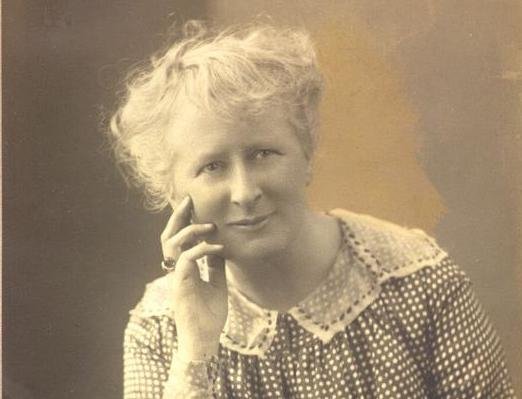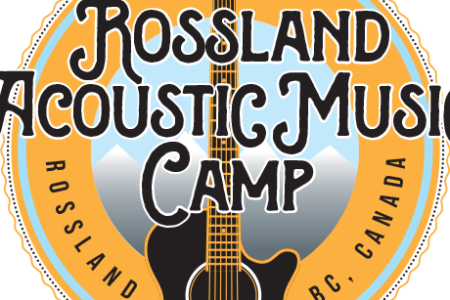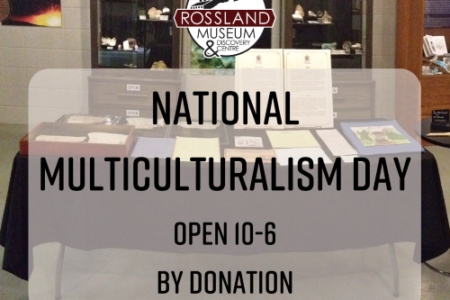TALES AND LEGENDS OF THE MOUNTAIN KINGDOM: Frankenstein Creator Visits Rossland
A recent article here in the Telegraph revealed that a special visitor will be in town for a few days next month, namely Sasha Van Bon Bon, a burlesque dancer of note who will be giving Rosslanders an opportunity to see her perform – and an opportunity to learn some burlesque moves in workshops. Recently, Shane Koyczan was also in town, wowing the Mountain Kingdom with his poetry. In fact, lots of cool artsy types come through town on their travels through the Kootenays, providing us with some much needed cultural outlets.
Once upon a time, however, Rossland had very few cultural outlets, back in the days when it was an isolated mudpit with a predominantly single male population. But once in a while someone of note would show up, someone who would come to entertain those lonely single males, someone other than a small horde of sequestered prostitutes, someone of class and poshness and learning. Peggy Webling was one of those entertainers.
I found out about Peggy Webling’s visit to Rossland in an unassuming paragraph of Jeremy Mouat’s book, Roaring Days. She’s mentioned along with another entertainer, Kitty Harris, which is most likely a stage name and for which my research turned up a slew of dead ends. Kitty was noted, however, for having what sounds like a fairly risque stage show that she toured around with back in the late 1890s, stopping in Rossland briefly where she teased miners by coquettishly cooing sultry phrases such as “I’m your warm baby”, “I’m your hot stuff”, and “come kiss your honey, Oh, do come and kiss your baby.”
Let’s hope she brought with her a posse of brawny body guards; she would probably have needed them.
Peggy Webling had a slightly different approach. But before we get to that, some background is necessary to place her in context.
Born in London, England in 1871, and one of a gaggle of seven daughters born to a poor silversmith, Peggy and three of her sisters were groomed for the stage from an early age by their mother. Though it’s not clear what experience their mother had in order to groom these daughters, it’s evident that they were a talented bunch. They were taught to recite Shakespeare and popular poetry and letters, made the tour of posh London salons, and eventually they had some famous admirers, like John Ruskin and Lewis Carroll. Everyone should know who Lewis Carroll was, right? But if you don’t know who John Ruskin was, you can be forgiven; I had to Google him myself and here is a wiki on him.
So obviously, Peggy and her sisters had some charm. They toured England, in fact, but it wasn’t lucrative enough to see the family through some hard times. Therefore, in 1890, at the age of 19, Peggy and her younger sister were packed off to Canada to stay with relatives in Brantford, Ontario.
There, she happened to meet and befriend the famous Canadian First Nations poet, Pauline Johnson. Peggy also published her first short story in the local Brantford paper. Perhaps this bit of writing success was the motivating factor behind the start of what would become a very interesting and prolific writing career. The stage wasn’t doing it; despite some other tours and a stint in New York, Peggy and her sisters couldn’t make a go of being performance artists in the States or in England. So, using the pseudonym Arthur Weston, Peggy wrote a comical play, in fact she wrote two comedies – and she and two of her sisters formed the small theatre troupe named the Misses Sisters Webling Company.
They decided to tour Canada with their new material, throwing some Shakespeare in for good measure (a sophisticated choice that might not have been fully appreciated in a backwater like gold rush Rossland). It was with this tour, where her plays “An April Jest” and “Britannia” were performed.
The tour happened between 1895 and 1897, and it went across Canada to Vancouver, south to California, and north again through the midwestern States. It had stop in Rossland. And in her 1924 book, The Story of One Score Years and Ten, she mentions our humble little town. Mouat quotes her in his book as observing, “there were very few women. The men whom one saw lounging about the busy, noisy streets, or hanging round the swing doors of the saloons, were of all the widely different types that turn up at a gold boom in any part of the world… The streets were thronged with men, who stared at us as if they had never seen any girls in their lives… Men came to stare at us through the glass door of the restaurant… Dancing was very popular in the Kootenay, in spite of the scarcity of women.”
So, Rossland obviously made an impression on Peggy, who from the tone of this quote seemed a little nonplussed by the stares she got from men, as if she were visiting a prison where men rarely saw women. But she was given a bit of royal treatment, too; she was given a tour of one of Rossland’s premier mines, the LeRoi, during her stay, which shows the regard the management of the mine had for her.
But do you know how Peggy Webling made her mark on the world? Ever seen the original Frankenstein movie, Frankenstein: The Man Who Made a Monster, which came out in 1931? Well, that movie was based on Peggy’s stage play, Frankenstein, which was based on the Shelley novel. The playwright is credited with naming the creature “Frankenstein” after its creator. Though the play was not well received by critics, Hollywood saw it as a bit of a gem, and paid her for the movie rights.
Peggy is also known for writing over a dozen novels and books, and poetry and journalism. But it is the pop culture iconic monster she is best known for bringing to life on the stage.
Peggy died June 27, 1949, in London – probably far more well off than she had been growing up. Her family maintains a private archive of her work.
Sources:
Roaring Days, by Jeremy Mouat
http://content.lib.sfu.ca/cdm/singleitem/collection/ceww/id/141/rec/5
The Monster Show: A Cultural History of Horror, by David J. Skal, as seen in Google Books


























